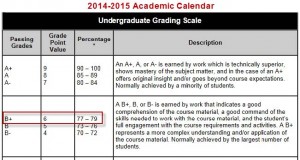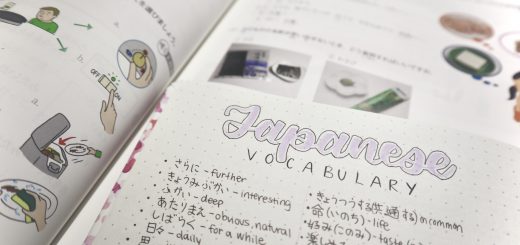Why I Dislike Evaluation More Than Anything Else
The one thing I dislike at university more than anything else is evaluation. Most days, I feel like I am a lemming herded onto a bus filled with other lemmings, which look blankly at each other and sit in silence while they are preparing to compete with each other at university to become the best lesser human version of Wikipedia, wolfram alpha, or whatever other internet resource is most relevant to their field.
The people of university inspire me, yet the methods of evaluation do not. I am taking a test. I am choosing between answers to a question, which are nothing like what I would say. When does someone ask you a question in life and then give you a list of answers and tell you to choose the best one? How is this even applicable? No time, onto the written section of the test. What do I do? Simply regurgitate the information back to a professor in their words and not mine? Better do it if I want a good grade and a competitive application to graduate school. Are we even learning anything useful? Are the current methods of evaluation just sapping time and energy from everyone at this place – the professors and the students? Is it impeding education?
I feel more trapped in a box than able to creatively express the things I have learned. I feel like I’m in a twisted operant conditioning experiment where I have been conditioned to navigate a maze in order to find a good grade at the end. Then my parents tell me how great I am and my peers respect me. My university congratulates me and even gives me money to pursue my academic interests. Yet any 5 year-old with access to Wikipedia can easily dominate me on any of the tests I’m supposedly good at.
 The educational evaluation system is broken. Creativity is being stifled. There is so much stress for students and professors on evaluation and it does not create an ideal environment for learning. There are unrealistic expectations placed by society on all people: get all A+s and be the best at absolutely everything you do. There can only be one best and with a world population of over 7 billion it’s a pretty daunting task.
The educational evaluation system is broken. Creativity is being stifled. There is so much stress for students and professors on evaluation and it does not create an ideal environment for learning. There are unrealistic expectations placed by society on all people: get all A+s and be the best at absolutely everything you do. There can only be one best and with a world population of over 7 billion it’s a pretty daunting task.
Nobody is happy with a B anymore. Was there a time when B was a solid grade? When it was something to be proud of? B in university is now unacceptable, yet when you go to Rotten Tomatoes and a movie gets a review of between 73-76% you think that’s pretty good and you might go see it.
Why is it that the university evaluation scale is a percentage between 0-100%, yet we don’t use the whole scale? The average student in university should receive 50 percent for the scale to be credible. Yet students are scaled into letter grades with between 3-5% differences. If you have a dollar and you lose 3 cents do you even care? Is having 97 cents significantly worse than having a dollar? And this is assuming that the particular evaluation is a reproducible and reliable measure of learning. There are so many variables over the course of a semester that could influence a particular student’s grade by far more than 3-5% including the inherent subjectivity of evaluation. Can the evaluation even be considered accurate? It can’t.
University evaluation is going in the wrong direction. Percentage based grading was introduced to UVic last year. There is no way you can reliably differentiate students to the measure of one percent differences. Testing cannot be objective, yet that is the way current testing is trending. Regurgitation of facts is being overvalued and free thinking is being undervalued. If a test has a “key” then it is pretty hard to convince me that there is a lot of room for a variety of interpretations and free thinking.
 Why has it come to this? I think a big part of it is the entitlement of our society and the inability to accept criticism. Students complain about testing being subjective and bad grades. Professors get sick of it and design tests that can be easily objectively defended instead of focusing on evaluating true learning. A trend toward tests that evaluate facts can cause grade inflation. Grade inflation dilutes the differentiation between students. GPA as an indicator of aptitude has been effectively rendered almost meaningless.
Why has it come to this? I think a big part of it is the entitlement of our society and the inability to accept criticism. Students complain about testing being subjective and bad grades. Professors get sick of it and design tests that can be easily objectively defended instead of focusing on evaluating true learning. A trend toward tests that evaluate facts can cause grade inflation. Grade inflation dilutes the differentiation between students. GPA as an indicator of aptitude has been effectively rendered almost meaningless.
If anyone is guilty of exploiting grade inflation, it is me. Early on in my academic career, I looked at what I needed to get into medical school and that became my focus. Looking back, the stress and energy caused by obsessing over grades retarded my overall evolution as a student. In the UVic grading system, any “A” grade is described as “self-initiating, exceeds expectation, and has an insightful grasp of the subject matter.” I don’t believe that I’ve achieved this in any class. Self-initiating? Hell, I can hardly pay attention to a lecture for more than ten minutes. Exceeds expectation? I doubt it. Insightful? Maybe I can come up with a few facts from a Wikipedia page.
I dream of a university where if you get one A+ in your entire academic career it’s considered a huge success. You throw a party. Your mom makes your favorite cake (carrot) and it is something to remember for the rest of your life. I snap back to reality; I’ve received a B+ on my most recent midterm. I’m livid. I blame the test. I blame the teacher. I blame society. I write a blog.
Aside:
I understand that critically evaluating something is hard and creates unwanted feelings in the person being evaluated, but it is something we must take seriously. For example, imagine your favorite food and think about what you like most about it. Think about the texture, taste, smell, look and how it makes you feel when you eat it. Now imagine you are presented with 20 dishes of your favorite meal and you have to critically rank them 1-20. That would be tough. Now think about if it was a food that you disliked and refused to eat. Could you get past your preconceived notions and rank 20 dishes of food 1-20 you didn’t like? It is extremely difficult to critically evaluate things you are passionate about and even tougher to be open to new ways of thinking regarding things about which you already have a negative opinion. Now design a test that accurately and reliably evaluates all the facets of learning. Good luck.
I am aware that I’ve thrown out a lot of ideas here and they don’t necessarily have the best flow – maybe I haven’t effectively developed any of them, but maybe that’s simply indicative of my education. Just saying! Simply presenting a problem and not proposing a solution is really doing nothing. I understand that this is a complex problem and the little I think I understand comes from personal observation and a student’s perspective. Nevertheless, next blog entry I will propose my own solution however misguided and uniformed it may be.





This was an enjoyable read James; thank you for so openly articulating these kinds of academic frustrations. I found this post to be very relatable and loved your use of humour in the mix of it all 🙂
With consideration of the courses I have taken with James throughout the last year I am impressed that he was able to keep such a level head and write a clear post on University evaluation. These topics frustrate me to no end, and my attempt to write on similar areas forces much more swearing, and anger.
It is really interesting that how students compartmentalize “failures” like a B+. I guess blaming the teacher is much better than how I blame myself and self-compartmentalize every “failure”.